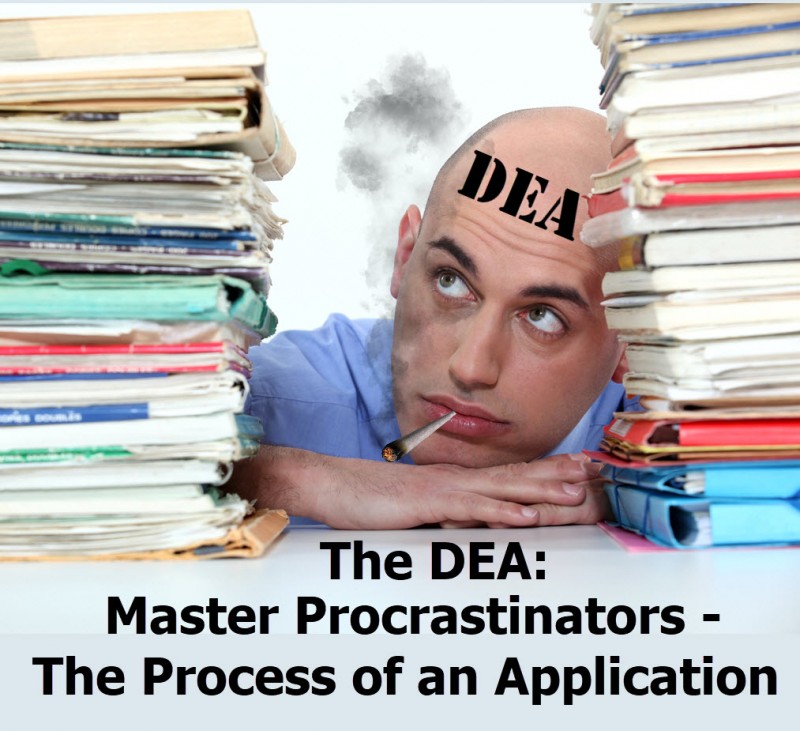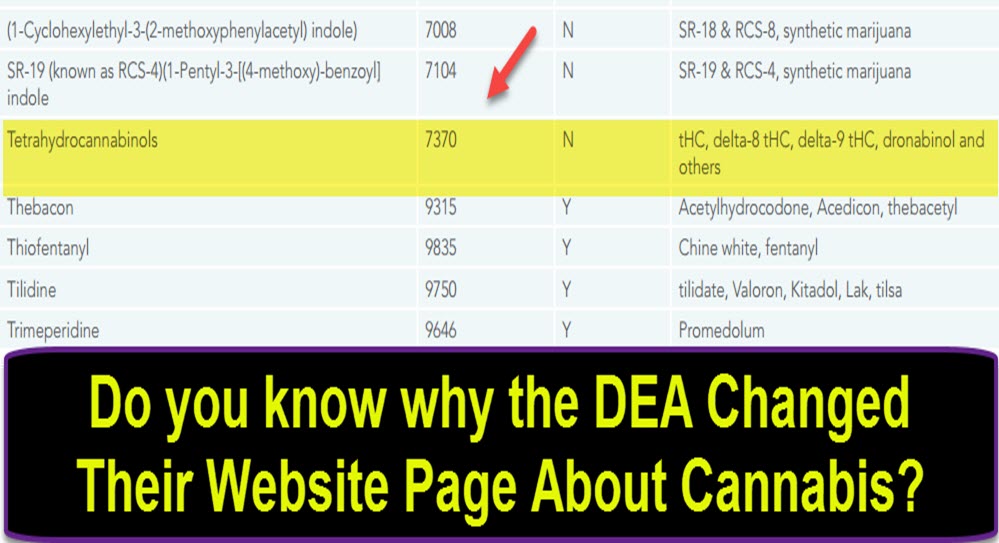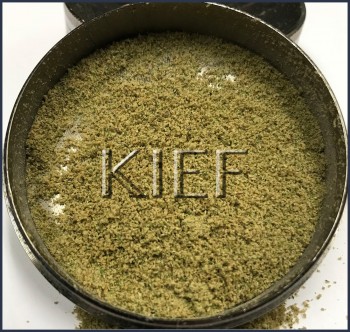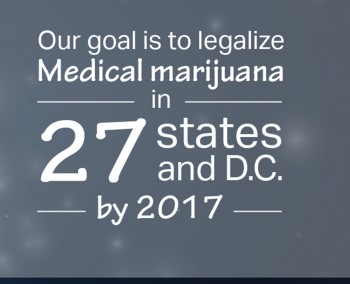The DEA: Master Procrastinators - The Process of an Application
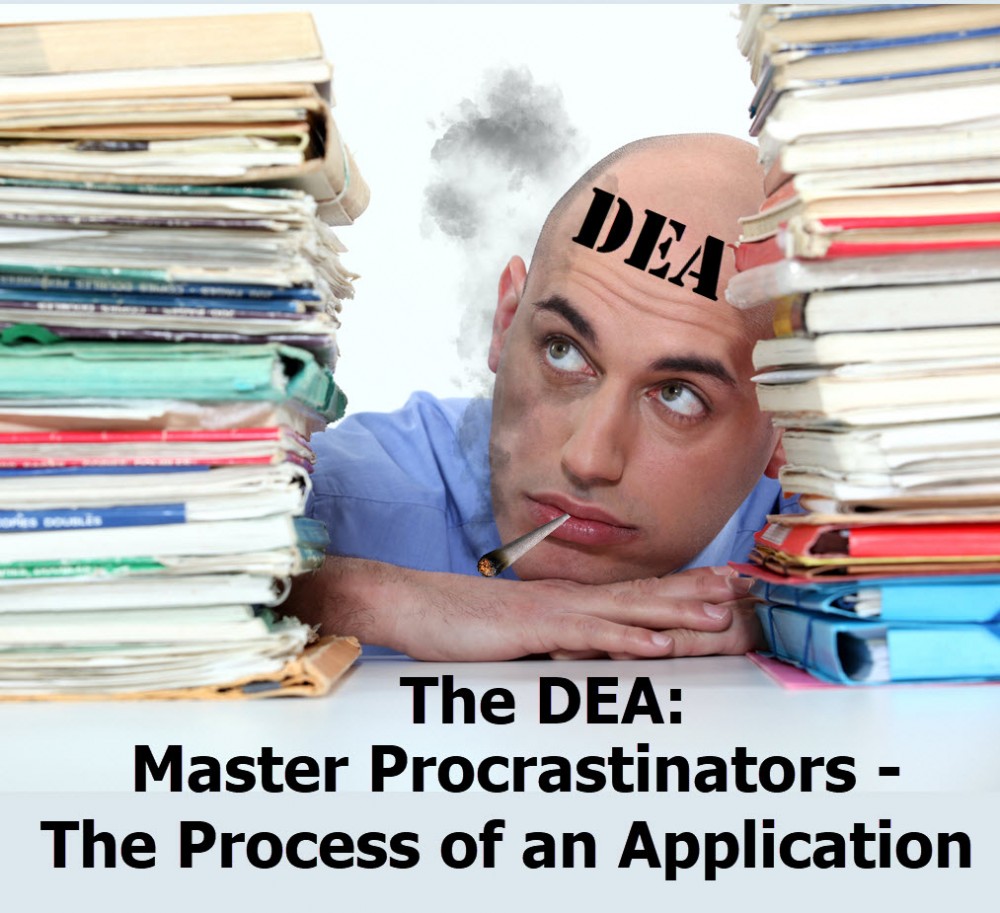
If government agencies were measured about how efficient they are, arguably the D.E.A is one of the most inefficient agencies on the planet.
From inception in 1973 till date, their only mandate was to;
“enforce the controlled substances laws and regulations of the United States, and bring to the criminal and civil justice system of the United States, or any competent jurisdiction, organizations and their principal members involved in the growing, manufacture, or distribution of controlled substances appearing, in or destined for, illicit traffic in the United States, and recommend and support non-enforcement programs aimed at reducing availability of illicit controlled substances.” - DEA
Irrespective of the metric you use to measure the performance capabilities of the DEA, they have faired quite miserably over the past 50-some years.
Not only have they not been able to “control the flow illicit drugs”, one can argue that they were the very reason why illicit drug cartels grew to the transnational-scopes they are today.
One of the key functions of the DEA is to grant permission to researchers, scientists, and institutions to conduct research on currently labeled “illicit drugs”. Cannabis is one of these drugs along with a slew of other potentially very beneficial substances on the planet.
If you look at the history of the DEA, they have been known to “stonewall” cannabis research around every corner. It wasn’t up until the late 90s that they permitted “scientific research” without a bias. Previously, all of their grants pertained mostly to research that would “show the negative effects of cannabis”. Most of their research came up with beneficial things – but that’s another story.
Today we’re taking a closer look at just how the DEA can get away with Stalling Research legally and how it’s a detriment to society on a larger scale.
A More Recent Example
Let’s not dive into the history of how they stalled petitions over and over again – we have a more current example to work on.
Here’s a snippet from Marijuana Moment that will provide you with some insight into what I’m talking about -
DEA was sued in June after declining to act on the more than two dozen applications that it received for approval to cultivate cannabis for research purposes. It’s been more than three years since the agency first announced it was opening the process to consider additional producers.
The suit, brought by the Scottsdale Research Institute (SRI), argued that the marijuana grown at the University of Mississippi—currently the only facility that’s federally authorized to cultivate the plant—is of poor quality, does not reflect the diversity of products available on the commercial market and is therefore inadequate for clinical studies. – Marijuana Moment
The Court recently ruled in favor of the DEA due to some sneaky technicalities the agency does to circumvent the law.
In this particular case, the DEA had an August deadline to respond to legal challenges. The agency did so by writing a quick memo stating, “They have to change the rules of applications”, which for some reason was enough of a justification to get them off the hook. According to the court, “The DEA had fulfilled its requirements with that memo”.
But what did they actually do? All they did was mention that they will be thinking about how they would go about processing applications. This means, years could go past if they are “thinking” about “planning” to do “something” about whatever they are asked for.
The DEA has long been guilty of these kinds of shady tactics. They wait till the very last moment to send off a mere letter or some other type of justification to stall any advancement in the research aspect or scheduling of cannabis.
They also use the FDA as a scapegoat to make the process even longer. According to the DEA, they will receive the request, they would move it to the FDA (who will initiate a panel to discuss what is being petitioned). This panel assembly might take a few months to a year to complete. Then, once they have gone through the entire proposal, they will then send the request to the “Department of Health” who will then make a panel to discuss the findings of the FDA. Who would then send it back to the FDA, for revision, who would then send it back to the DEA, who will assemble a panel to discuss the findings of both the FDA and the DOH.
Then, and only then will they deny any request to research or de-schedule cannabis.
The entire process of bureaucratic bullshit can take years, and with this mechanism, they have been successful at stifling research and making drugs more dangerous for everyone.
Why this is bad for us all!
Let’s say that “drugs” are as bad as the DEA claims it to be. If so, why are we keeping researchers from it? Wouldn’t it make more sense to study the things that are dangerous to us, and make it either safer or create ways to treat the symptoms of thus said “bad drugs”?
This would be logical. However, the DEA doesn’t operate under logic or reason. They are merely the guard dogs to the Pharmaceutical industry, using drug laws to stifle research into substances that can provide more efficient alternatives to a host of pharma drugs.
THE DEA AND CANNABIS, READ THIS...
IS IT TIME TO ABOLISH THE DEA AND START OVER? CLICK HERE.
OR..
WHY DID THE DEA CHANGE THEIR WEBSITE FOR WEED?
OR..
DEA APPROVES LEGAL CANNABIS, READ THIS.

